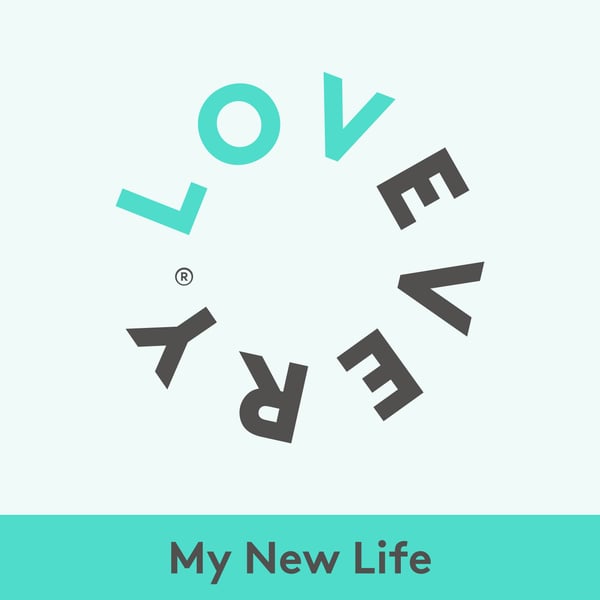Little liars: What to do about lying
My New Life
Kate Garlinge
4.7 • 654 Ratings
🗓️ 6 April 2022
⏱️ 26 minutes
🧾️ Download transcript
Summary
While many parents despair when in the face of these little lies, evidence suggests it is proof that executive functioning skills are developing in a child’s brain. Kang says to use these moments as teachable ones, but resist the urge to fall back on the “Never Cry Wolf” story. You’ll find out why at the end of this episode!
Key Takeaways:
[2:37] What is the difference between lying and storytelling?
[3:50] How does a child’s fantasy world factor into the storytelling?
[5:49] How should you respond when you trap your child in a lie?
[8:28] Is it a good idea to call our children out on their lies at all?
[12:05] How does the situation differ when a child is lying to get their needs met?
[15:48] When do children start to use white lies in social settings?
[18:10] Are white lies OK? How can we help children differentiate between the various types of lying?
[20:04] How do parents encourage truth-telling with a 3-5 year old?
[24:21] Jessica shares key takeaways from her honest conversation with Dr. Kang Lee.
Mentioned in this episode:
Brought to you by Lovevery.com
Receive weekly emails about your child’s development, and stay in the know about new play essentials, promos, and more by signing up on Lovevery.com
Follow Lovevery and Jessica Rolph on Instagram.
Dr. Kang Lee and his associates are conducting a social integrity study exploring children’s decision-making and rule adherence. Children will read stories and do activities in two 1-hour sessions, online via Zoom. Families will receive a certificate and a $25 Amazon gift card for participation. Use this link to learn more and participate: kangleelab.com/participate
Transcript
Click on a timestamp to play from that location
| 0:00.0 | Parenthood is a time of so much change for you and your baby. |
| 0:13.8 | A little reliable information can go a long way towards making this new life a good life. |
| 0:20.1 | I'm Jessica Rolfe and this is my new life, |
| 0:24.1 | a love every podcast. While the science aligns on what's healthy for a baby's brain development, |
| 0:30.1 | when it comes to how to care for our babies, there's a seemingly endless supply of competing |
| 0:35.0 | perspectives. Parents are swimming in advice on sleep, feeding, |
| 0:39.8 | parenting philosophies. In this season of the podcast, we aim to provide a variety of curated |
| 0:46.2 | perspectives so you can make informed choices for your family. |
| 0:54.5 | Leave through any Dr. Seuss or Shel Silverstein book, |
| 0:57.7 | and you'll encounter lie after bold-faced lie. |
| 1:01.5 | Only in these fantasy realms, |
| 1:03.0 | the lies are the product of a wildly creative imagination. |
| 1:06.5 | There's good reason why children love these books. |
| 1:08.9 | Their worlds are steeped in fantasy. For children, |
| 1:12.2 | the line between make-believe and reality is hazy. And testing the boundary between the two |
| 1:17.1 | is part of growing up. Children, like adults, lie. And they can learn to do so from the young |
| 1:23.8 | age of two years old, according to the researchers. Today's guest has been examining lying and what it tells us about human cognition for over two decades. |
| 1:32.6 | The man is so dedicated to his field of study, he has convinced some 5,000 children to lie to him. |
| 1:39.0 | I'm speaking of Dr. Kong Lee, professor at the University of Toronto. |
| 1:43.4 | Kong's lab studies suggest that at the age of two, |
| 1:46.6 | about half of all children lie and half tell the truth. At four years old, 90% of children will lie, |
| 1:53.0 | and then lying peaks at around age seven. We might think lying is bad, but evidence suggests that |
... |
Please login to see the full transcript.
Disclaimer: The podcast and artwork embedded on this page are from Kate Garlinge, and are the property of its owner and not affiliated with or endorsed by Tapesearch.
Generated transcripts are the property of Kate Garlinge and are distributed freely under the Fair Use doctrine. Transcripts generated by Tapesearch are not guaranteed to be accurate.
Copyright © Tapesearch 2025.

